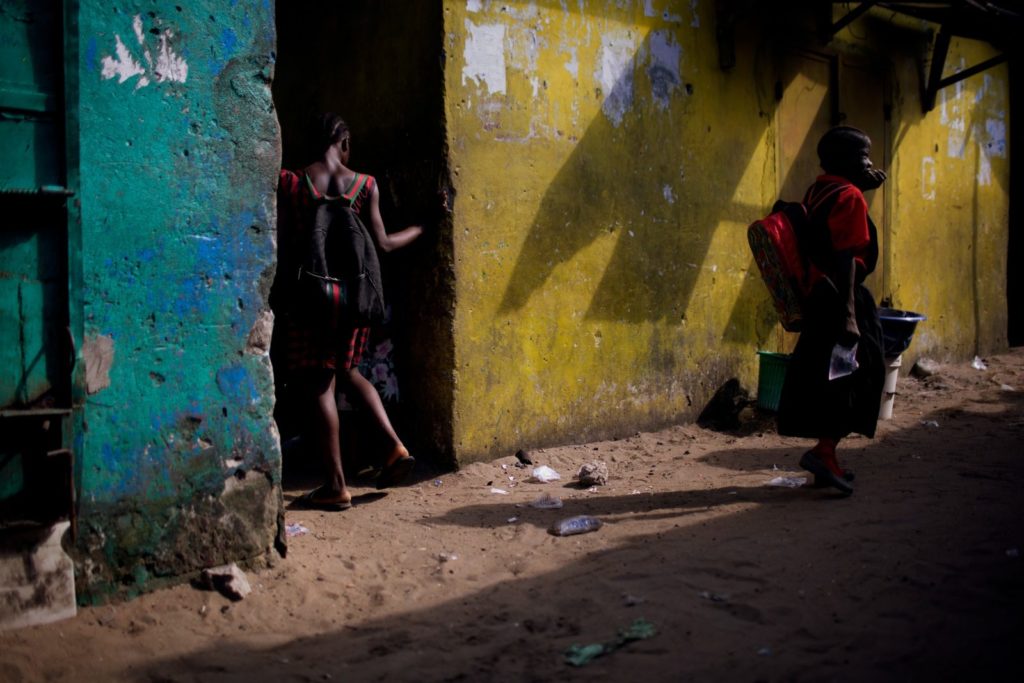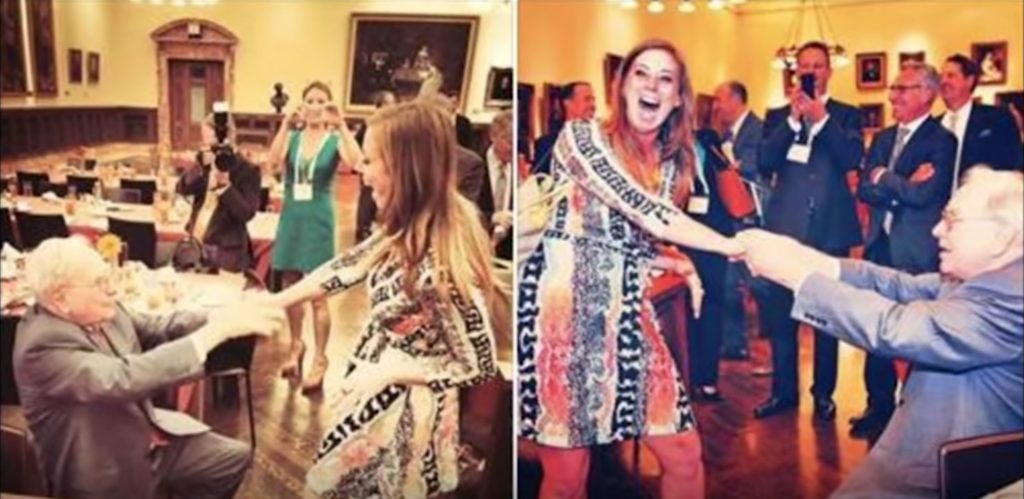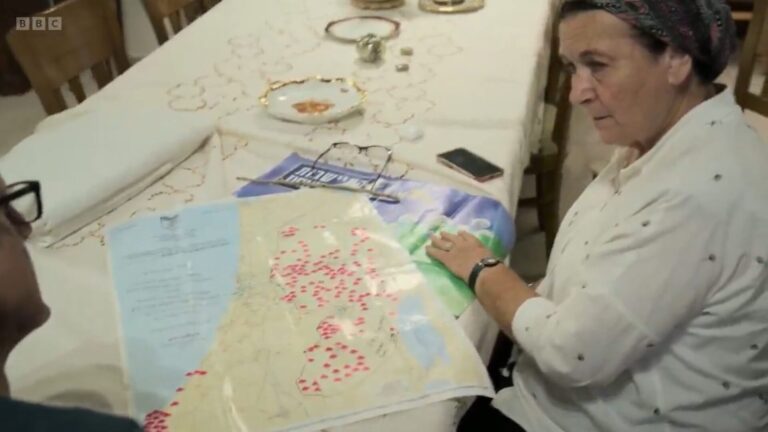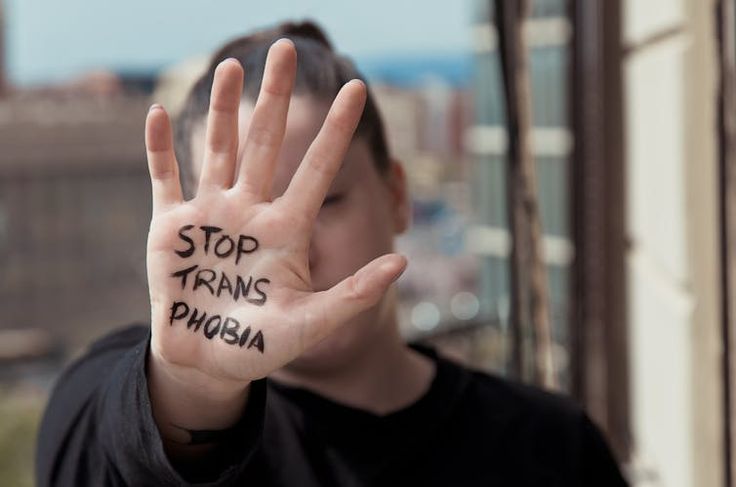More Than Me, an American charity founded by Katie Meyler, said it was saving some of the world’s most vulnerable girls from sexual exploitation. But from the very beginning, girls were being raped.
By Finlay Young for ProPublica – Photography by Kathleen Flynn
This story was co-published with Time magazine.

Schoolgirls in West Point, Monrovia.
ON SEPT. 7, 2013, on a long, straight avenue that runs across the bustling downtown of Liberia’s capital, Monrovia, street hawkers peered at the spectacle. Guests sweltered on packed rows of plastic seats, while at the end of a red carpet, next to the U.S. ambassador, President Ellen Johnson Sirleaf sat atop something like a throne.
One young American was at the center of it all.
She was a dervish of hugs, laughter, even tears. Her name was Katie Meyler. It was her 31st birthday and, she would later say, the best day of her life. The More Than Me Academy was opening.
The building had been a war-ruined shell people used as a toilet, festering so long a tree had grown through its walls. Now, with the Liberian president having given Meyler free use, it shone, improbably rebuilt into a school. A slogan ran step by step up a staircase: “I – promise – to – make – my – dream – come – true.” A sense of possibility infused the day, for Liberia and for the girls whose lives Meyler was transforming.
In matching neckerchiefs, some sang, some danced. One, 15 years old but betraying no nerves, gave a speech: “There is a saying in Liberia. Nothing good can ever come out of West Point.” Their home was an infamous sandy limb protruding from the city out into the sea, where over 70,000 of the world’s poorest people lived in a labyrinth of zinc-topped houses. The girl spoke of friends her age with multiple babies, friends forced to sell their bodies. “I could have been one of these girls, but I am not. I am not, because More Than Me believed in me.”
Meyler wanted to save these girls from sexual exploitation. She wanted to educate them, empower them, keep them safe. That’s why she had founded a charity called More Than Me. When the Liberian president, who had won a Nobel Peace Prize for her fight for women’s safety, was asked that day what she wanted from those keen to help her country, she answered, “To expand Katie Meyler’s initiative to as many communities as possible.”
The charity would raise over $8 million. Meyler would enter a rarefied world of globe-trotting problem-solvers. She would rub shoulders with Warren Buffett, Bill Gates and Oprah Winfrey, and even get invited to the Obama White House. MTM’s footprint in Liberia would multiply to 19 schools teaching 4,000 students.
Yet some of the girls present that September day had a secret. Far from being saved from sexual exploitation, they were being raped by the man standing beside Meyler on the stage.
His assaults went on for years and continued in the new school. He was protected by his position — he was presented as “co-founder” of MTM; he and Meyler had had an intimate relationship, and she kept him in place even after having reason to suspect his predilections. But he was also shielded from exposure in the community by everything that she had brought: a school, scholarships and, above all, hope.
After his crimes became known, filling hundreds of pages of police and legal records, the charity worked to obscure the details and to place responsibility almost anywhere but with Meyler or MTM: Liberia’s culture was blamed. As a growing number of former staff, victims and their families told ProPublica their stories, More Than Me fought to contain the damage. Senior charity officials, with Liberian government support, cross-examined key witnesses, asking if they wanted to take back what they had said. Many of those they reached still rely on the charity for support. They told the charity they no longer wanted their stories published.
The More Than Me board, in a statement, said that the moment it learned of the abuse, the charity took immediate action. “We are doing everything in our power to foster a safe and secure environment that will prevent our students from being victimized again.” Charity representatives also spoke of enemies and vendettas. They argued that the good they had done in Liberia more than made up for any harm.

Katie Meyler captivated Americans with the stories of girls she met in Monrovia, Liberia, who she said were so poor that they had to sell their bodies just to buy clean drinking water. Her social media followers gave her money to send them to school. She started a charity called More Than Me, and in 2012 she won $1 million live on NBC to build a school of her own. Her charity was created to save these vulnerable girls from sexual exploitation. But from the very beginning, girls were being raped by a man Meyler trusted. He was a former child soldier, the charity’s first staff member and, at one point, Meyler’s lover. After a yearlong ProPublica investigation, reporter Finlay Young delves into the question of who is responsible when those who help also cause enduring and irreversible. Read more about this story: propublica.org/unprotected. h




13 Comments
Pingback: อย่าฝากชีวิตไว้กับหมอ
Pingback: Thai Massage
Pingback: https://stealthex.io
Pingback: wyld gummies
Pingback: live videos
Pingback: โคมไฟ
Pingback: หวยสด Huaysod เว็บเล่นหวยออนไลน์ อันดับ 1 ดีไหมถ้าเปรียบกับ LSM99
Pingback: vakantie umbrie
Pingback: lazywin888
Pingback: เช่ารถตู้พร้อมคนขับ
Pingback: เลขเด็ดจากปฏิทินจีน
Pingback: ของพรีเมี่ยม
Pingback: pg168